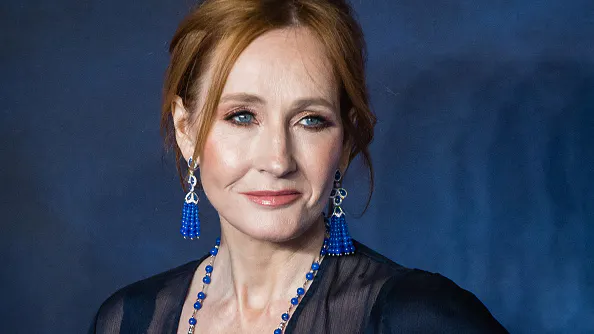Following a British High Court ruling last week that it would be difficult for children under the age of 16 believing they are transgender to give informed consent to undergo treatment with puberty-blocking drugs, Harry Potter author JK Rowling stated in an interview with Good Housekeeping magazine that when it comes to discussing transgender issues, “Many are afraid to speak up because they fear for their jobs and even for their personal safety. This climate of fear serves nobody well, least of all trans people.”
Rowling, who has been reviled by many members of the transgender community for her stance on transgenderism, stated: “Many women are concerned about the challenges to their fundamental rights posed by certain aspects of gender identity ideology. I’ve had a huge postbag since speaking up on this issue and more than 90 per cent of the letters and emails have been supportive. My correspondents have included medical staff, social workers, prison workers, workers in women’s refuges and members of the LGBT community, including trans people.”
“Many are afraid to speak up because they fear for their jobs and even for their personal safety,” Rowling continued. “This climate of fear serves nobody well, least of all trans people. I believe everybody should be free to live a life that is authentic to them, and that they should be safe to do so. I also believe that we need a more nuanced conversation around women’s rights and around the huge increase in numbers of girls and young women who are seeking to transition. Some of the most heartbreaking letters I’ve received have been from young women who regret the irreversible surgeries they’ve undertaken. These stories need to be told.”
In a case in the British High Court last week, the court stated, “In our view, it is appropriate to consider first, whether a child under 16, or a young person between 16 and 18, can give the requisite consent; and secondly, if, in principle, they can do so, whether the information provided by the defendant and the Trusts is adequate for achieving informed consent.”
“The evidence that we have on this issue clearly shows that practically all children / young people who start PBs (puberty blockers) progress on to CSH (Cross-sex hormone),” the court wrote, adding, “ … the use of puberty blockers is not itself a neutral process by which time stands still for the child on PBs, whether physically or psychologically. PBs prevent the child going through puberty in the normal biological process. As a minimum it seems to us that this means that the child is not undergoing the physical and consequential psychological changes which would contribute to the understanding of a person’s identity.”
The court concluded, “It will obviously be difficult for a child under 16 to understand and weigh up such information. Although a child may understand the concept of the loss of fertility for example, this is not the same as understanding how this will affect their adult life. A child’s attitude to having biological children and their understanding of what this really means, is likely to change between childhood and adulthood. For many children, certainly younger children, and some as young as 10 and just entering puberty, it will not be possible to conceptualize what not being able to give birth to children (or conceive children with their own sperm) would mean in adult life. Similarly, the meaning of sexual fulfilment, and what the implications of treatment may be for this in the future, will be impossible for many children to comprehend.”
In June, Rowling questioned the effort to substitute the term “people who menstruate” for the word “woman,” tweeting, “I’m sure there used to be a word for those people. Someone help me out. Wumben? Wimpund? Woomud?”
After being attacked for her views on transgenderism, Rowling commented:
If sex isn’t real, there’s no same-sex attraction. If sex isn’t real, the lived reality of women globally is erased. I know and love trans people, but erasing the concept of sex removes the ability of many to meaningfully discuss their lives. It isn’t hate to speak the truth. The idea that women like me, who’ve been empathetic to trans people for decades, feeling kinship because they’re vulnerable in the same way as women — i.e., to male violence — “hate” trans people because they think sex is real and has lived consequences — is a nonsense. …
I respect every trans person’s right to live any way that feels authentic and comfortable to them. I’d march with you if you were discriminated against on the basis of being trans. At the same time, my life has been shaped by being female. I do not believe it’s hateful to say so.
After Rowling was subjected to verbal abuse online with the hashtag #RIPJKRowling, 50 actors, writers, playwrights, journalists signed a letter expressing solidarity with her:
JK Rowling has been subjected to an onslaught of abuse that highlights an insidious, authoritarian and misogynistic trend in social media. Rowling has consistently shown herself to be an honourable and compassionate person, and the appalling hashtag #RIPJKRowling is just the latest example of hate speech directed against her and other women that Twitter and other platforms enable and implicitly endorse. We are signing this letter in the hope that, if more people stand up against the targeting of women online, we might at least make it less acceptable to engage in it or profit from it.
We wish JK Rowling well and stand in solidarity with her.

.png)
.png)

